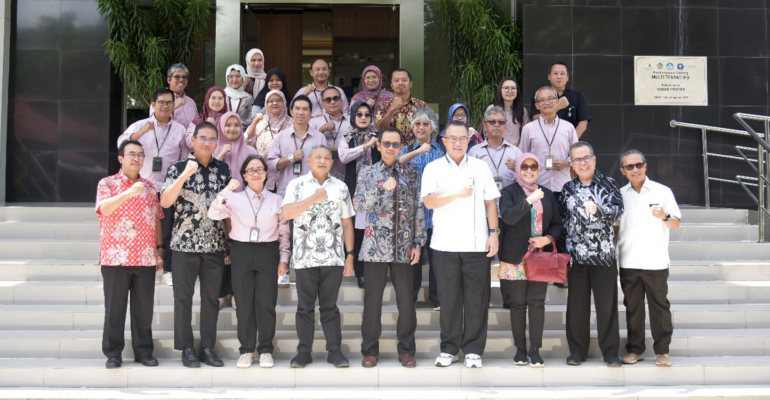Acting Director General of Higher Education Conducts Field Visit to STP IPB University

Located at Science Techno Park (STP) IPB University, Taman Kencana, Bogor, Acting Director General of Higher Education, Prof Nizam made a field visit on Tuesday, 13/2.
During his visit, he said that he wanted to see the results that have been achieved by STP IPB University. He said that the spirit of STP IPB University must continue to grow in order to transform research and development, to answer the challenges of Industry needs.
“STP IPB University can be part of realizing food self-sufficiency and can glorify farmers to become the profession expected by the younger generation. Industrial transformation can bring the campus to downstream through startups, so that innovation-based startups will emerge,” said Prof Nizam.
He hoped that STP would be able to create food independence and have a big mission to build food sovereignty through innovation.
During the visit, the Rector of IPB University, Prof Arif Satria was grateful for the support from the Higher Education because IPB University wanted to show that what the Higher Education had assigned to IPB University had been implemented, namely to develop downstream innovations owned by IPB University.
“Currently we already have a downstream level of 35 percent. This is a very positive thing and we will continue to improve. STP IPB University is a locomotive for increasing innovation in Indonesia which can be utilized for the benefit of industry, society and government,” said Prof Arif.
Meanwhile, the Chief of Science and Technopark Area Institute (LKST) IPB University, Prof Erika B Laconi was grateful because STP IPB University received this visit.
“STP IPB University is one of those who received assistance from the government in the context of science and technopark development, and now through STP IPB University, almost 40 percent of innovations have collaborated with industry,” said Prof Erika.
She added that IPB University’s innovation work was not only patents, but there were intellectual works in the form of systems such as cultivation systems, seeds and so on.
“Through startups that are scaled-up, there will be an emotional bond between lecturers and students in research, then after graduation. We help them become candidates for Chief Executive Officer (CEO) in this Startup Building, so that when the startup develops students can involve their lecturers as commissioners and in the future lecturers can be more prosperous through the results of their intellectual work,” he said. (dh/Lp) (IAAS/Ard)



